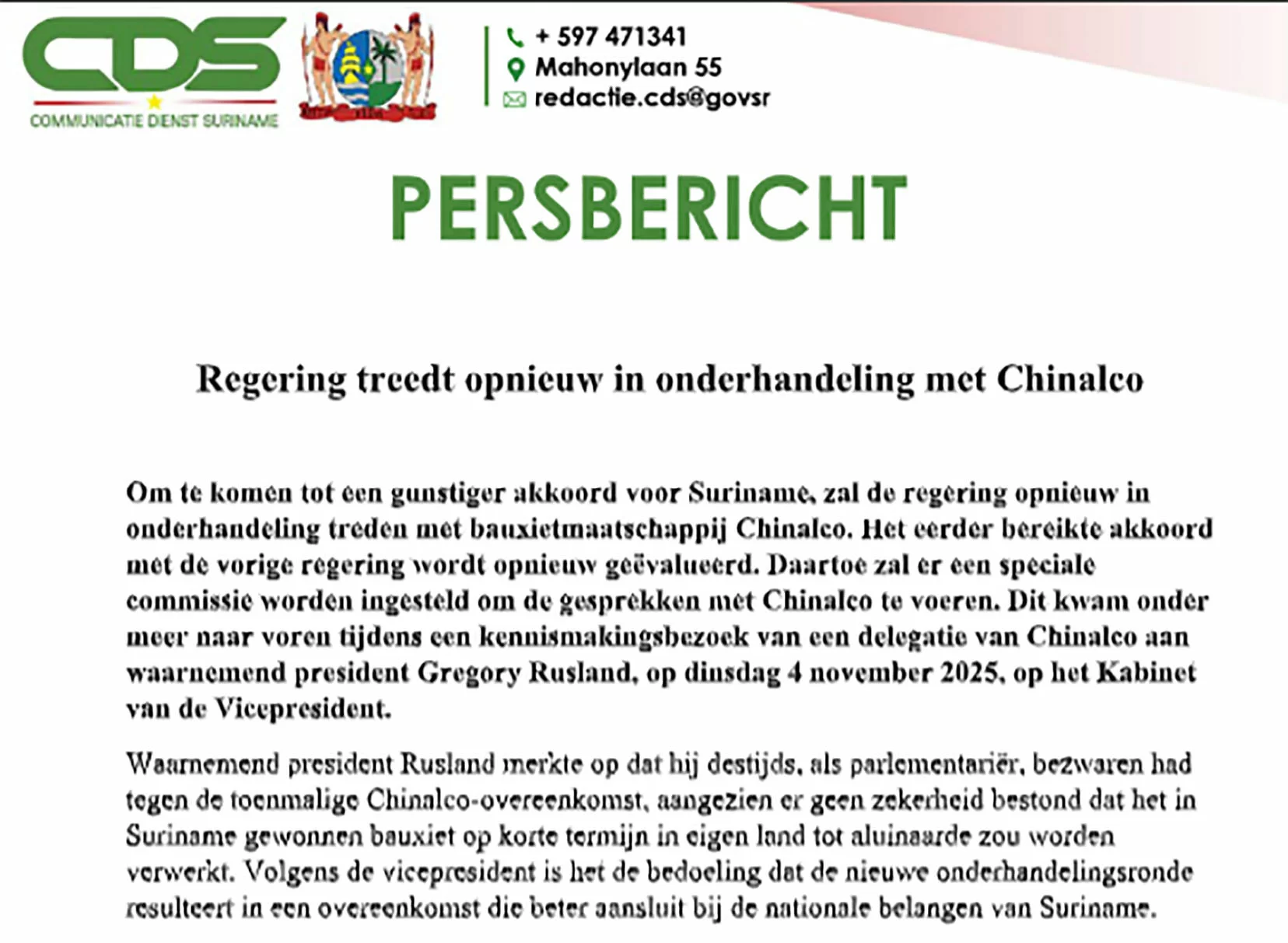In a recurring pattern, the Surinamese government has once again shifted blame onto journalists for miscommunication, rather than addressing its own messaging errors. The latest incident involves Vice President Gregory Rusland, who, while acting as interim president, engaged in discussions with representatives from the Chinese mining company Chinalco. Following these talks, the Directorate of Public Communication issued an official statement titled ‘Resumption of Talks with Chinalco,’ which detailed plans for renewed negotiations aimed at securing a better agreement for Suriname. This statement was subsequently disseminated by the Suriname Communication Service (CDS) under the headline ‘Government Re-enters Negotiations with Chinalco.’
However, upon her return from Brazil, President Jennifer Simons publicly contradicted the statement, asserting that no negotiations were taking place with Chinalco and that no bauxite would be exported. She emphasized that ‘the government consists of the president, the vice president, and the Council of Ministers,’ indirectly rebuking Rusland. This contradiction has left journalists and media outlets in a difficult position, as they had reported based on official government communications.
The opposition has seized upon this incident, suggesting a lack of unity within the government. The core question remains: what truly transpired? The original statement from the Directorate of Public Communication implies that Rusland either acted independently, driven by his ego as interim president, or that his office fabricated the information. Both scenarios are equally troubling. Despite the viral spread of the government’s statement, Rusland did not refute it before Simons’ remarks.
Yet, the media bore the brunt of the blame. Rusland denied any negotiations, and Simons accused journalists of ‘writing something incorrect.’ However, the fault lies not with the media but with the vice president’s office, which released the misleading information. Journalists merely reported based on official sources.
This is not the first instance where politicians have made politically inconvenient statements only to later blame the press. While journalists are not infallible, it is detrimental to democracy when those in power systematically shift the blame for their communication failures onto the media. True credibility comes from acknowledging mistakes, not denying or distorting them. A healthy democracy requires a mature relationship between the government and the press, built on mutual respect rather than distrust and blame.
